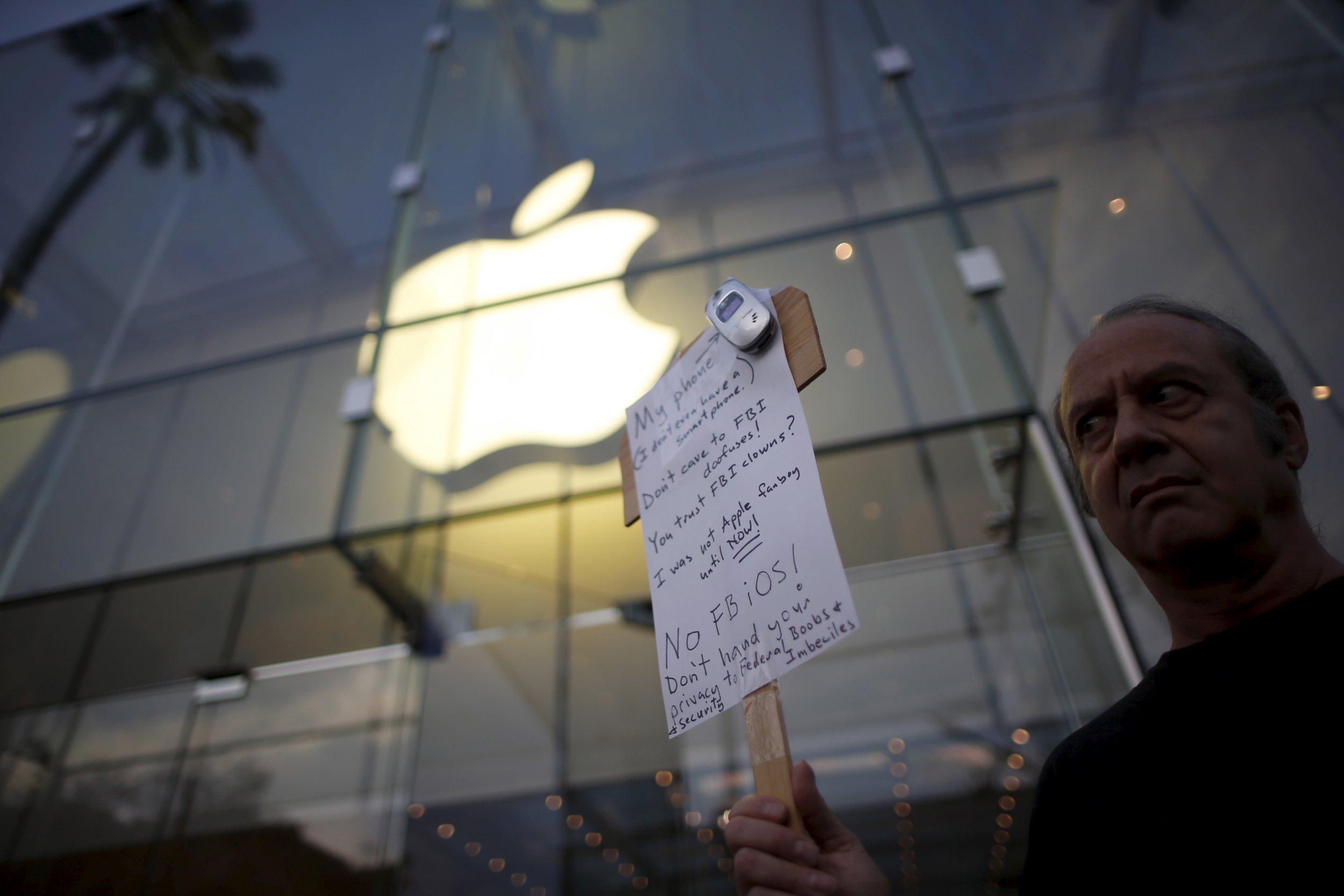
The war of words between Apple and the FBI over the iPhone of the San Bernardino, Calfironia, shooter appeared to end on Monday, not with an anticipated bang but with a whimper. The FBI found a way to crack the iPhone without Apple's help.
The court case between Apple and FBI was expected to reach the Supreme Court but it never even made it to the courtroom after the Department of Justice canceled the hearing the day before. A week later, the feds announced that they cracked the iPhone.
The sudden, anticlimactic end to the case does not close the Pandora's box that was opened when the FBI was granted a court order in January to compel Apple to open the iPhone, which Apple refused. Questions linger on how the FBI's new technology may be applied in the future, whether the FBI will need to disclose it to Apple and what role Congress—once eager to intervene—can play in the future.
In a statement released after the case was dropped on Monday, Apple released a statement reaffirming its stance on encryption. "From the beginning, we objected to the FBI's demand that Apple build a backdoor into the iPhone because we believed it was wrong and would set a dangerous precedent," reads Apple's statement. "As a result of the government's dismissal, neither of these occurred. This case should never have been brought."
Many Apple supporters—or rather, FBI dissenters—expressed skepticism that the FBI managed to find a solution around Apple in the 11th hour. "Journalists: Please remember that government argued for months that this was impossible, despite expert consensus," tweets NSA whistleblower Edward Snowden. The Wall Street Journal's editorial board says the ending to this case provides "more reasons to doubt their credibility and even basic competence."
American Civil Liberties Union staff attorney Esha Bhandari tells Newsweek that government and the public will likely become more wary of government appeals for assistance from tech companies in similar cases in the future. "Hopefully, the courts will be skeptical if the government asks for third-party assistance in the future," Bandari says.
Law enforcement officials have been clamoring for a backdoor access to iPhones and other encrypted smartphones to use for their police investigations, and FBI finally cracking the iPhone may be seen as welcome news. However, opening only one iPhone—shooter Syed Farook's iPhone 5C on iOS 9—does not translate to an one-size-fits-all solution, according to Bhandari. Considering there are 12 other iPhones that the Justice Department wanted Apple to open, the case is a small victory in a presumably long war. "We will continue to pursue all available options for this mission, including seeking the cooperation of manufacturers and relying upon the creativity of both the public and private sectors," says Justice Department spokesperson Melanie Newman to The New York Times.
The public knowledge that the FBI now can unlock iPhones opens a new can of worms about whether it should alert Apple of its new vulnerability. If the FBI was able to get into Farook's iPhone through a hole in Apple's software that the company doesn't know about, a bug commonly called a "zero days" because of the time the company has to patch it, then federal guidelines may state that FBI has to inform Apple about the vulnerability for them to patch the problem.
The internal process in which the intelligence agencies decides to tell vendors about the loopholes is called the Vulnerabilities Equities Process (VEP), which was recently disclosed by the Electronic Frontier Foundation (EFF). The VEP was created by the White House in 2014 to hold the NSA more accountable, following a Bloomberg report found the NSA was secretly using a bug called Heartbleed for years to gather sensitive information transmitted between websites.
The EFF believes there is a "strong bias" based on VEP's criteria to inform Apple. Bhandari hoped that the government will take a "big-picture outlook"—such as the public's interest in the matter—to side in informing Apple.
Although the end of Apple v. FBI may bring a short lull over the encryption issue, Congress is not planning to pull itself away from the larger encryption debate, officials tell Newsweek. The bipartisan House encryption working group, created last week , will continue to meet about discuss possible compromises between tech companies and law enforcement agencies.
The Feinstein-Burr Senate encryption bill, which would force tech companies to open encrypted communication for law enforcement, has reportedly already been drafted. The Senate is on recess until April 4, but the bill reportedly been passed onto the White House for feedback.
"This lawsuit may be over, but the constitutional and privacy questions it raised are not," says Republican Congressman Darrell Issa of California. "Those worried about our privacy should stay wary—just because the government was able to get into this one phone does not mean that their quest for a secret key into our devices is over."
Uncommon Knowledge
Newsweek is committed to challenging conventional wisdom and finding connections in the search for common ground.
Newsweek is committed to challenging conventional wisdom and finding connections in the search for common ground.
About the writer
Seung Lee is a San Francisco-based staff writer at Newsweek, who focuses on consumer technology. He has previously worked at the ... Read more
To read how Newsweek uses AI as a newsroom tool, Click here.








